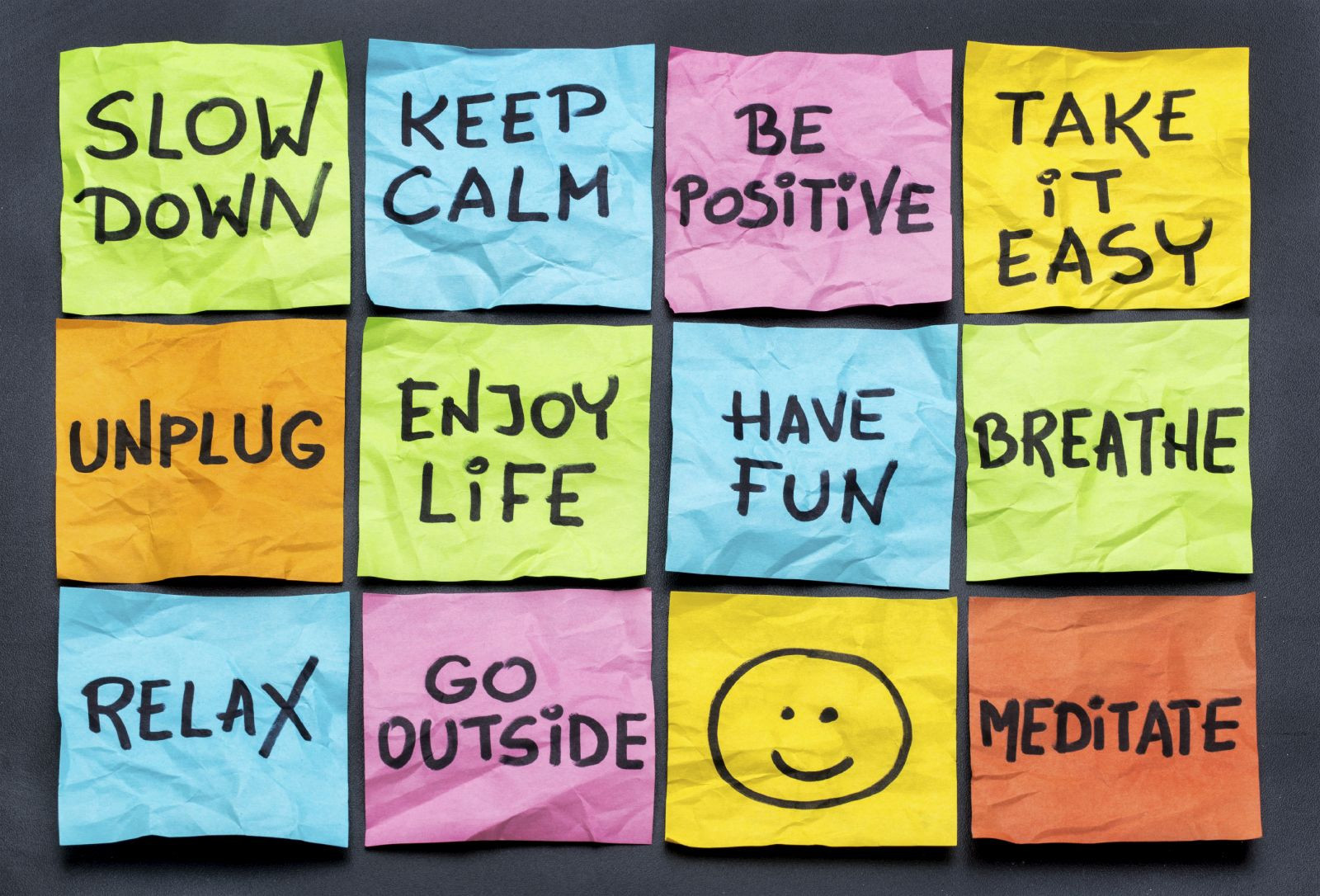What is stress?
Stress can be defined as any type of change that causes physical, emotional, or psychological strain. Stress is your body’s response to anything that requires attention or action. Everyone experiences stress to some degree.
Tips to Manage Stress
Stress is part of being human, and it can help motivate you to get things done. Even high stress from serious illness, job loss, a death in the family, or a painful life event can be a natural part of life. You may feel down or anxious, and that’s normal too for a while.
Talk to your doctor if you feel down or anxious for more than several weeks or if it starts to interfere with your home or work life. therapy, medication, and other strategies can help.
In the meantime, there are things you can learn to help you manage stress before it gets to be too much. These tips may help you keep stress at bay:
10 Tips and Steps to reduce stress

We all experience stress and anxiety at one time or another. For some, it may be more severe than others, but one thing is for sure: we can all agree that a stress-free life is a happy one. If you are fed up with your stress and anxiety, you may be wondering how to reduce stress. The good news is there are plenty of stress reducers that you can incorporate into your life to help you.
Step One: Think Ahead
- Stressful triggers are usually repetitive. If you’re dealing with stress and anxiety, you may find that the same things each month cause you unneeded stress. Some examples include past due bills, laundry piling up, or deadlines at work.
- Once you identify the problems in your life that consistently stress you out, you can begin working to eliminate them by planning ahead.
- If money problems seem to be constantly plaguing you, it may be time to consider coming up with a budget. A budget can help you to meet your financial goals by setting aside money for those important bills so that you don’t have to worry when it comes time to pay them.
- If you have issues setting aside time to do housework or laundry, you could set aside one day of each week to take care of these duties. For example, you could do all the laundry on Sundays and clean the house on Mondays.
- Be sure not to pile too much work onto one day, or you could risk becoming even more stressed from the amount of work you have to do that day.
- Deadlines can be enough to make even the most levelheaded person become stressed. You may feel like you have a million things to do and having a deadline to complete them causes you to feel even worse. Remember in these times to take a moment to breathe. Tackle your work duties one at a time and you will find your emotions to be much more manageable.
Step Two: Tweak your Morning Routine
- A positive morning routine sets the mood for the entire day. Routines are powerful planning tools that reduce stress and anxiety before they build up. When life gets hectic, it can be easy to forget to do the things that many of us need to be healthy and fully functioning. Be sure to set aside time each morning to eat breakfast and give yourself some time alone to relax.
- We all know that breakfast is the most important meal of the day, but far too many of us skip it anyway. When you don’t consume the calories you need to sustain your energy level in the morning, exhaustion and hunger go to work, causing your anxiety to get worse.
- Additionally, it is tempting for many to sip a cup of coffee in the morning as a quicker way to get an energy boost for the day. This is not a good practice for those who struggle with stress or anxiety because caffeine is proven to make these issues worse.
- If you feel you don’t have time to eat a balanced breakfast in the morning, a good alternative to take with you when you’re on the go is a fruit smoothie. The fruit in smoothies contains natural sugars that will give you a boost of energy to get your day started on the right foot without the negative side effects like caffeine crashing or jitters.
Step Three: Get More Sleep
- Your journey to learning how to reduce stress should include an evaluation of your bedtime routine.
- If you are not getting enough sleep, studies show this could be contributing to your stress level. Additionally, feeling tired or simply like you don’t have enough energy to fuel you can be a reason to stress.
- Make sure you are setting aside at least 8-9 hours a night for sleep. When it’s time for bed, shut off all electronic devices and make your room a calm and quiet environment.
- Don’t be tempted to lie on your bed at night and scroll through your phone for relaxation. This will stimulate your brain and make it more difficult to sleep in the long run.
Step Four: Consider Taking a Supplement
- If you are looking for a natural and healthy way to use on your journey to learn how to reduce stress naturally, supplements could work for you.
- There are several options including melatonin to aid in sleep and lowering stress levels or B Complex, which works to balance out hormones that may be causing your ailments.
- Implementing supplements into your life does not always immediately solve your issues, and it will also be more effective when combined with other techniques such as the ones suggested here. If you feel like the option you’re trying isn’t working for you, move on to a new one. It can do much to help you discover how to reduce stress.
Step Five: Designate some “Me Time”
- Anyone dealing with anxiety or stress should set some time aside each day to focus on themselves.
- This can be as simple as taking 5 minutes each day to sit quietly and reflect, or it can be more complex. Some enjoy taking a warm bath or reading a book or sitting in a quiet room to reflect on the day.
- While having a glass of wine at the end of a long day may seem like a good way to unwind, the long-term effects of this on your mental health is quite detrimental. This method is temporary at best and carries the possibility of becoming addicted or hurting your overall health.
Step Six: Lean on Your Support System
- The people you surround yourself with can be your biggest weapon against stress and anxiety.
- When you are feeling low, reach out to someone close to you. You may choose to take this time to vent about your day or bounce ideas off each other about how to reduce stress and anxiety.
- You might also consider joining a support group. This way, you can be surrounded by people that share the same problems as you and understand what you’re going through. This can also be a special time you can give to yourself to get more in touch with your inner self, furthering your discovery of how to reduce stress.
Step Seven: Rock Out
- You may not have thought about listening to music to combat your stress and anxiety, but this is something that is easily accessible that can surely help.
- The type of music doesn’t matter as much as the way the music makes you feel. If you are feeling sad and stressed, opt out of the depressing love songs about loss and consider upbeat party-style music. If you are feeling chaotic, a classical tune with a slow tempo could do a lot to calm you down.
- The next time you’re feeling stressed, turn the radio up! Get lost in the music and feel free to dance or sing at the top of your lungs. You will find yourself feeling happier and more carefree when you are done.
Step Eight: Take a Vacation
- When it feels as if life is piling up quicker than you can decompress, a vacation can be just the thing for you!
- Take a few days off work to drive around the countryside. If you are feeling adventurous, you could do this without an itinerary and just go where the road takes you. Otherwise, plan a fun and relaxing few days to decompress and soak up the good things in life.
A spa day or lunch in the sun somewhere nice can boost your morale and make you forget all your worries. You would be surprised just how much a small break from the hustle and bustle of everyday life can do to calm your stress and anxiety. For some, this could help enough to get rid of their problems, but for most, it won’t. Be sure to use this relaxing time to reflect and come up with ideas on how to bring vacation home with you. Perhaps you could make more time on the weekends to have a massage or drive around town. The opportunities are endless!
Step Nine: Meditate
- Mindfulness to combat stress and anxiety is a commonly overlooked resolution, perhaps because it is so misunderstood in modern society.
- Meditation is not obscure or odd. It is simply a way to get in touch with your inner emotions and help you gain control of them.
- An easy way to begin meditating begins with either sitting or lying down in a position that is comfortable enough for you to remain in for a long period of time. The length and frequency of your meditation sessions are completely up to you, but you may find yourself going for longer than intended at times, depending on how stressed you are.
- Close your eyes and get in touch with your mind. The goal here is to clear it completely and be present in the moment with no negative thoughts. Focus on your breathing and relax your shoulders. Continue to do this until you feel you are unable to keep your mind from wandering.
- If this works for you, be sure to set time aside each day to do so. It will only help as long as you are consistent and dedicated to the cause.
Step Ten: Ask for Help
- Sometimes dealing with your stress and anxiety can’t all be accomplished at home.
- That’s where a counselor or therapist could come in. These professionals are trained in multiple ways to assist you with your problems and can suggest resolutions that are tailored to you. If you find something isn’t working, communicate that information with your therapist so that you can redirect and take full advantage of the time you have together.
- The road to living and stress and anxiety-free life is long and winding. With some perseverance and a little trial and error, you can be well on your way to all your goals!
- Stay healthy, eat healthy food
Always remember, your health is your wealth
Check out related articles here.



